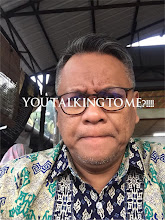Thursday, July 31, 2008
Tuesday, July 15, 2008
Lecture 1 - Introduction to Computers
History of Computers
•First generation (1940s) computers used vacuum tubes to conduct electricity.
•Second generation (1950s) - transistors replaced tubes, integrated circuits in 1970s (the third generation).
•Fourth generation: large-scale, integrated circuit chips. 1971, Intel introduced the 4004 microprocessor.
•The microprocessor chip is a central processing unit, the brains of the computer, built on a single chip.
Three years later, they introduced the 8080 version, which was capable of running the processing unit of a computer.
•The fifth generation of computers (1990s) offers the development of artificial intelligence, computers based on logical inference and parallel processing, and radical changes in the Internet, as we know it today.
What Is a Computer?
How is a computer defined?
•First generation (1940s) computers used vacuum tubes to conduct electricity.
•Second generation (1950s) - transistors replaced tubes, integrated circuits in 1970s (the third generation).
•Fourth generation: large-scale, integrated circuit chips. 1971, Intel introduced the 4004 microprocessor.
•The microprocessor chip is a central processing unit, the brains of the computer, built on a single chip.
Three years later, they introduced the 8080 version, which was capable of running the processing unit of a computer.
•The fifth generation of computers (1990s) offers the development of artificial intelligence, computers based on logical inference and parallel processing, and radical changes in the Internet, as we know it today.
What Is a Computer?
How is a computer defined?
- Electronic device operating under the control of instructions stored in its own memory
- Accepts data--Raw facts, figures, and symbols
- Processes data into information--Data that is organized, meaningful, and usefu
- Produces and stores results
What are the categories of computers?
- Mobile computersand mobile devices
- Personal computers (desktop)
- Midrange servers
- Mainframe computers
- Supercomputers
Course Information
Course Objectives
—By the end of the course, you should be able to
—Gain basic understanding of a computer and its applications
—Use computer –related skills to complete academic assignments
Course Description
This course:
—Prepares students to function in the information age where Computer Literacy is becoming a prerequisite in whatever career a student chooses.
—Provides students with basics for understanding concepts necessary for success in the Information Age
—Aims to instill in students an appreciation for the impact of information technology on people and our environment
—Gives students a basis for acquiring the necessary computer related skills
Topics Covered
—Overview of Information System
—The System Unit
—System Software and Operating System
—Application software
—Input & Output
—Secondary Storage Devices
—Internet and The Web
—Designing A simple Web Page
—Privacy, Security, Ergonomics and the Environment
Teaching Methodology
—Lectures
—Reading AssignmentsComputer Laboratory Practicals / Hands-on-Assignments
Assessment
—Assignment 1 (due Week 7) 15%
—Assignment 2 (due Week 11) 25%
—Assignment 3 (due Week 14) 20%
—Test 1 20%
—Test 2 20%
TOTAL 100%
—By the end of the course, you should be able to
—Gain basic understanding of a computer and its applications
—Use computer –related skills to complete academic assignments
Course Description
This course:
—Prepares students to function in the information age where Computer Literacy is becoming a prerequisite in whatever career a student chooses.
—Provides students with basics for understanding concepts necessary for success in the Information Age
—Aims to instill in students an appreciation for the impact of information technology on people and our environment
—Gives students a basis for acquiring the necessary computer related skills
Topics Covered
—Overview of Information System
—The System Unit
—System Software and Operating System
—Application software
—Input & Output
—Secondary Storage Devices
—Internet and The Web
—Designing A simple Web Page
—Privacy, Security, Ergonomics and the Environment
Teaching Methodology
—Lectures
—Reading AssignmentsComputer Laboratory Practicals / Hands-on-Assignments
Assessment
—Assignment 1 (due Week 7) 15%
—Assignment 2 (due Week 11) 25%
—Assignment 3 (due Week 14) 20%
—Test 1 20%
—Test 2 20%
TOTAL 100%
Introduction
Welcome everyone to the TSL 061 class blog. This blog will provide you with information on the course, lecture notes, instructions on your assignments and any important announcements.
Please also use this blog to ask questions and to seek clarifications.
Thank you
Subscribe to:
Comments (Atom)
